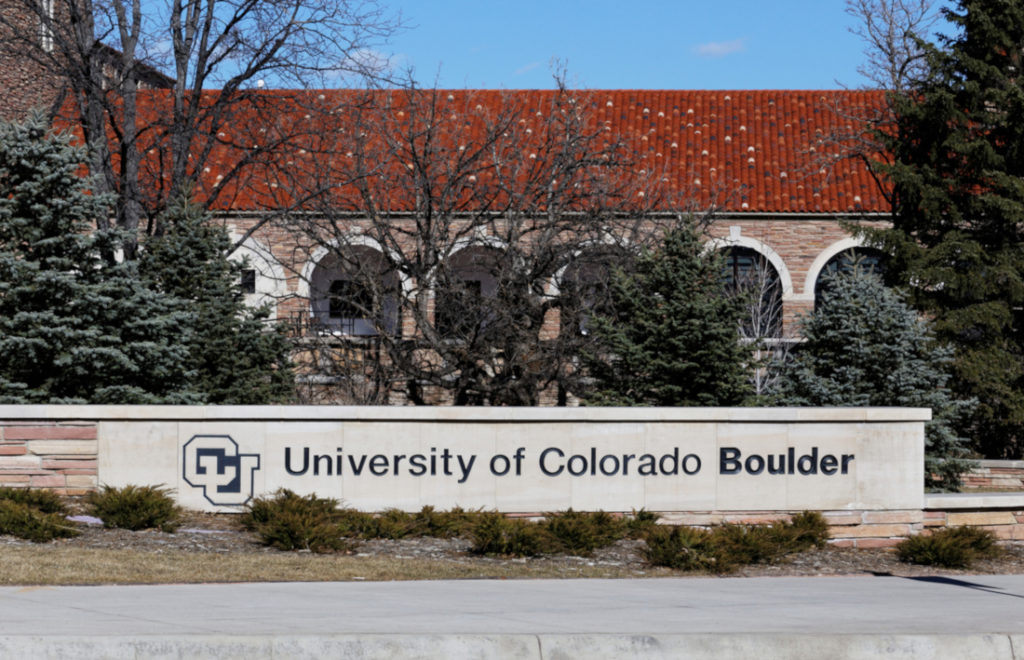By Jeffrey A. Roberts
CFOIC Executive Director
Allowing the University of Colorado regents to “engage in manipulative word-play and end-run” the Colorado Open Records Act by defining the term “finalist” to mean a sole “nominee” for the CU presidency would “deal a crippling blow” to the statute, argues a brief submitted to the Colorado Court of Appeals on Tuesday by the Colorado Freedom of Information Coalition.
“If hidebound agencies are permitted to invent novel and unintended definitions of commonly used words to avoid statutory disclosure obligations, the legislature’s choice of terms will cease being of any legal significance and will become merely advisory,” says the friend-of-the-court brief, co-filed with the Joseph L. Brechner Center for Freedom of Information at the University of Florida and multiple national and Colorado news and journalism organizations.

The regents are appealing a March 6 decision by Denver District Court Judge A. Bruce Jones, who found that the board violated CORA when it provided only Mark Kennedy’s application to the Boulder Daily Camera in response to the newspaper’s request for the names and applications of all finalists in CU’s presidency search. Jones rejected the university’s interpretation of CORA as “linguistic gymnastics” and ordered CU to produce the names and applications of the six finalists for the job that went to Kennedy.
“Under the plain and ordinary meaning of the statutes, there was more than one finalist for the 2019 CU President position,” the judge wrote.
The Colorado Open Meetings Law requires “the list of all finalists under consideration” for a chief executive position in government be made public no later than 14 days prior to the appointment of one of the finalists. CORA defines finalist as “a member of the final group of applicants or candidates” made public under the requirements of the open meetings law, and it allows the public to inspect most records submitted by a finalist. It adds: “If only three or fewer applicants or candidates for the chief executive officer position possess the minimum qualifications for the position, said applicants or candidates shall be considered finalists.”
Withholding the names of all candidates, except for Kennedy, who were interviewed for the CU presidency, “contravenes Colorado law,” CFOIC’s brief says. “Because the statutory entitlement to disclosure could scarcely be clearer, (the regents) can win only by persuading the court to usurp the legislature and judicially rewrite the statute.”
The public has a “profound interest” in the hiring of state university presidents and how they are chosen, the brief argues. “If presidential searches are conducted in the total secrecy for which (the regents) argue in this case, the public will have no way of knowing whether a diverse range of candidates received consideration, or whether the process was engineered to produce a preordained result,” wrote attorneys Marc Flink, Frank LoMonte and Tom Kelley. Flink and Kelley serve on CFOIC’s board; LoMonte directs the Brechner Center.
The brief cites recent examples of university presidents who were mired in scandals, including the Michigan State University president forced to resign for her role in covering up serial sexual molestations by former gymnastics doctor Larry Nassar. “A poorly chosen president can endanger the university’s finances and the safety of its students,” it states. “To say, as (the regents) insist, that the hiring decision is none of the public’s business simply ignores reality.”
Research shows that secretive searches “primarily accrue to the benefit of insider candidates with ties to the decisionmakers,” the brief says, and “there is no night-and-day difference” between the backgrounds of university presidents hired in secrecy versus those hired after searches where finalists were disclosed. University of Florida law student Turner Street found that the most common career path for someone publicly rejected as a presidential finalist is to attain a different college or university presidency. That happened to Kennedy, who had been a publicly named finalist for the University of Central Florida presidency before getting the CU job.
The brief submitted by CFOIC, the Brechner Center and other organizations notes that some other state and local entities in Colorado have circumvented CORA by naming sole finalists, but more recently the city of Aurora conducted an open process to select its new police chief while under nationwide scrutiny following the August 2019 death of Elijah McClain while in police custody.
“The public was able to see that a diverse and well-qualified slate of candidates received careful consideration, rather than being left to ‘trust the system’ at a time of enormous distrust and skepticism of government operations, especially policing. It would be unthinkable in the year 2020 to take the position that the public is entitled to no voice in the hiring of a police chief.”
Other signers of the friend-of-the-court brief include: The Denver Post, The Colorado Sun, Colorado Press Association, Colorado Broadcasters Association, Colorado News Collaborative, The Colorado Springs Gazette, Colorado Politics, Society of Professional Journalists, Colorado SPJ Pro Chapter, National Freedom of Information Coalition, News Leader Association and Reporters Committee for Freedom of the Press. The signers are awaiting a ruling by the Colorado Court of Appeals granting leave to file the brief.
CU’s opening Court of Appeals brief, submitted by the office of Colorado Attorney General Phil Weiser, argues that the names and applications of other candidates interviewed by the regents were “correctly” withheld from the Daily Camera.
“This conclusion is compelled by the plain language of the statute,” the CU brief says. “CORA defines ‘finalist’ to mean anyone ‘made public pursuant to’ the (open meetings law), meaning two weeks before appointment. Put differently, the statute authorizes the Board of Regents to decide who is a finalist subject to the public vetting process. Based on the Board’s vote, Mr. Kennedy was the only candidate made public and the only candidate who went through the rigorous public scrutiny of the final stages of the selection process.
“The district court failed to consider these facts, and simply asserted that candidates from an earlier stage in the process were also finalists.”
Follow the Colorado Freedom of Information Coalition on Twitter @CoFOIC. Like CFOIC’s Facebook page. Do you appreciate the information and resources provided by CFOIC? Please consider making a tax-deductible donation.




